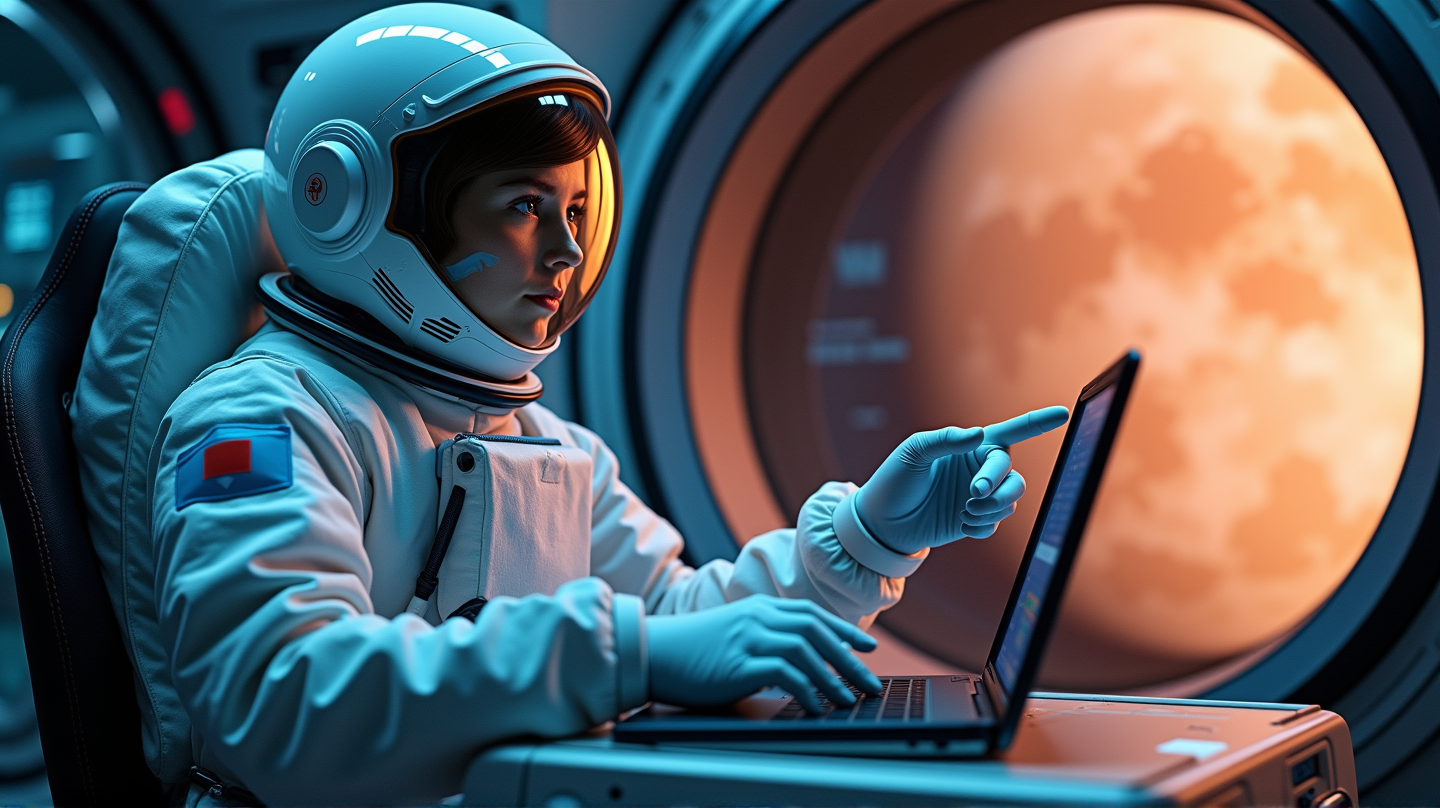Revolutionary Leap: NASA and Google's AI Medical Assistant Ready for Space Missions
NASA and Google join to pioneer an AI medical assistant, promising to transform astronaut healthcare on missions with limited Earth contact.

In an extraordinary partnership, NASA and Google are introducing a breakthrough in space healthcare technology: the Crew Medical Officer Digital Assistant (CMO-DA). This AI-powered tool is set to redefine how astronauts manage health issues during their deep-space travels, particularly to the Moon and Mars. Leveraging cutting-edge natural language processing and machine learning, CMO-DA autonomously assesses symptoms, diagnoses conditions, and recommends treatments, ensuring crew safety even when communication with Earth is delayed or impossible.
A New Era for Space Medicine
As astronauts gear up for longer missions, the CMO-DA becomes crucial in bridging the gap caused by communication delays between Earth and space. This AI marvel, born from the NASA-Google collaboration, is trained on extensive spaceflight medical literature and has been rigorously tested in simulated environments. By autonomously providing timely and accurate medical support, it ensures astronauts’ health remains unimpaired as they journey to distant worlds.
Empowering Earth and Space Alike
Though designed with space missions in mind, the CMO-DA’s potential extends far beyond orbit. On Earth, it promises to revolutionize healthcare accessibility in remote and underserved areas. By providing specialist-level care in places devoid of immediate medical attention, this AI technology could bridge significant healthcare disparities, reflecting technology’s power to transcend boundaries and improve lives globally.
AI’s Role in Deep Space Missions
The CMO-DA embodies the critical role of AI in future space missions. Its capabilities highlight a shift towards greater mission self-reliance and underscore the necessity of integrating advanced technologies in the operational fabric of space exploration. This aligns seamlessly with NASA’s Artemis program goals, underscoring the strategic importance of autonomous healthcare in facilitating human presence beyond Earth.
A Collaborative Innovation for Future Growth
The NASA-Google partnership showcases the profound impact of cross-industry collaboration in the advancement of technology. As autonomous medical technologies mature, they promise economic growth within the AI healthcare sector and stimulate investment in innovations at the intersection of aerospace, AI, and healthcare. Such partnerships are pivotal as they pave the way for creating resilient healthcare systems on both Earth and in space.
Public Enthusiasm and Future Impact
The public’s response to NASA and Google’s initiative has been overwhelmingly positive, celebrating the innovative integration of AI into space and healthcare. As this technology evolves, its implications are vast, potentially setting a new standard in medical care both on Earth and in space. The CMO-DA stands as a testament to human ingenuity and collaboration, promising a future where AI plays an indispensable role in healthcare across the cosmos.
According to OpenTools, this groundbreaking collaboration is more than just a leap in technology; it’s a glimpse into a future where AI seamlessly integrates into critical aspects of life, both on Earth and among the stars.

